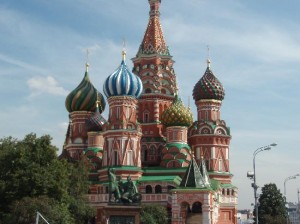Moscow losing the economic battle
Tuesday, May 13th, 2014 3:48:40 by Jamshed Sindhu
The Anglo-Saxons often say that “the devil is in the details ” when they refer to a key theme in the fine print are not in the headlines. In the case of conflict between Russia and Ukraine the devil is, rather, in the numbers and helps to understand the vagaries of the political situation. The Russian economy is looking more damaged than it initially seemed to conflict with Ukraine and the truth is that geopolitical tensions could not have come at a worse time, and whose growth had weakened significantly in recent years. ” With inflation rising, the risks were considerable stagnation in the last two or three years. In addition, the trade surplus has almost vanished and capital flight is becoming a very serious problem,” says Erik Nielsen, chief economist at Unicredit.
Until March 14, the net outflow of private capital from Russia reached 50.000 billion since the beginning of the year, equivalent to 2.5% of GDP. A figure that Neil Shearing, chief economist at Capital Economics in emerging markets, rises to 70,000 million for the entire first quarter to include certain operations of the financial system, which would represent 3.2% of GDP. Throughout 2013 capital outflows amounted to 63,000 million. ” The Russian economy is not as immune to geopolitical climbing as many initially thought,” says Shearing. “In some circles, there is a feeling that the change of tone adopted by Russian President Vladimir Putin, in recent days is a diplomatic smoke screen to protect Russia from further sanctions that could inflict serious damage to its economy “said the economist.
This massive outflow of capital, despite the repatriation of funds that many Russian companies have carried out in anticipation of a tightening of sanctions against the country, has caused the collapse of the ruble in around 9% since early this year and has favored inflation skyrockets to 7.2% in April, far from the target of 5 % set by the central bank. The monetary authority has approved successive rises in interest rates in recent months to 7.5%, with the objective to increase the attractiveness of the Russians in the eyes of investors assets and curb price pressures. But so far, while more expensive access to finance and accelerate the slowdown of the Russian economy. 2013 closed with a GDP growth of 1.3%, the weakest pace since 1999, with the exception of the fall of 2009, during the global financial crisis.
The situation will not better this year. In fact, the risk rating agency, Moody’s just make a public report which provides a decrease of 1% Russian GDP in 2014, provided that the penalties do not go over. The always optimistic, International Monetary Fund (IMF) believes that Russia still grow this year by 0.2 % but warns, however, against the difficulty that this environment poses to the financial system of the country and the need to closely monitor solvency and asset quality of some entities to exchange rate volatility. But in the first quarter, the economy contracted by 0.5%, according to official data of Moscow, and the head of the IMF mission in Russia, Antonio Spilimbergo, believes the economy can return to finish the quarter in negative rates, which would mean that Russia is already in technical recession and will be difficult to overcome this situation in the second half of the year. Russia is too dependent on energy, which accounts for 70 % of exports and more than half of its revenue budget, so that a new episode of this ” economic war ” as the name of Moody’s, would embarrass the emerging giant.
“A capital outflow of this scale, while substantial, it is unlikely that promotes an immediate crisis in the balance of payments. After all, despite having employed 35,000 million since the beginning of the year, the central bank still has reserves of 490,000 million,”says Shearing. But experts admit that an outflow of capital at this rate is not sustainable and thrive if new sanctions, the situation can worsen considerably. And their citizens know it. The still provisional data from the Institute of International Finance, which represents the major private banks in the world, emphasize that the Russians bought net assets abroad by 63.700 billion in the first quarter of 2014, more than double the 29,300 that bought in the fourth quarter of 2013.
Short URL: https://www.newspakistan.pk/?p=43935

















